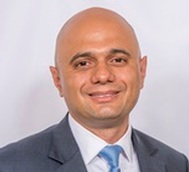Latest News from Everycare
 Dame Barbara Windsor’s husband has revealed the actress has Alzheimer’s and her condition has worsened in recent weeks. He said they had gone public with her diagnosis – made in 2014 – because it had become “a lot more difficult for us to hide”.
Dame Barbara Windsor’s husband has revealed the actress has Alzheimer’s and her condition has worsened in recent weeks. He said they had gone public with her diagnosis – made in 2014 – because it had become “a lot more difficult for us to hide”.
Alzheimer’s often develops slowly over several years. And experts say it is not always obvious to begin with because the symptoms can overlap with other illnesses.
An estimated 850,000 people in the UK are affected by this most common type of dementia. So how can you spot the signs? It’s more than just losing the car keys. Alzheimer’s is more than just forgetting things occasionally. Everyone can forget where they left that cup of tea or people’s names – sometimes.
Forgetting stuff is also part and parcel of normal ageing. But these aren’t necessarily signs of Alzheimer’s or another form of dementia. Memory loss is much more serious and is often one of the first signs of the disease. Short-term memory is usually affected, making people forget what they’ve done 10 minutes before or forgetting conversations they have just had.
Memory problems can also lead to people repeating themselves, or having problems recalling events that happened recently or struggling with familiar daily tasks, such as following a recipe or using a bank card.
To find out more visit the BBC Website
 Daffodils grown by a Welsh sheep farmer could be used to help more than 225,000 patients with Alzheimer’s disease.
Daffodils grown by a Welsh sheep farmer could be used to help more than 225,000 patients with Alzheimer’s disease.
Kevin Stephens’ flowers produce unusually high amounts of galantamine, which can slow down the progress of the devastating disease.
Scientists believe the daffodils, grown in the Black Mountains in Wales, have more of it due to the stress they are placed under having to endure harsh winters at 1,200ft.
The unfavourable conditions cause them to flower much later than regular species, which produce very little quantities of the chemical.
Mr Stephens, 51, has spent six years developing a method of growing and harvesting the daffodils to extract galantamine for use in Alzheimer’s drugs.
 Four dementia scientists have shared this year’s 1m Euro brain prize for pivotal work that has changed our understanding of Alzheimer’s disease.
Four dementia scientists have shared this year’s 1m Euro brain prize for pivotal work that has changed our understanding of Alzheimer’s disease.
Profs John Hardy, Bart De Strooper, Michel Goedert, based in the UK, and Prof Christian Haass, from Germany, unpicked key protein changes that lead to this most common type of dementia.
On getting the award, Prof Hardy said he hoped new treatments could be found.
He is donating some of his prize money to care for Alzheimer’s patients.
Much of the drug discovery research that’s done today builds on their pioneering work, looking for ways to stop the build-up of damaging proteins, such as amyloid and tau.
Alzheimer’s and other dementias affect 50 million people around the world, and none of the treatments currently available can stop the disease.
For more on this story visit the BBC website
The Government has announced an extra £150m for social care which ‘will be allocated according to relative needs’.
 Secretary of State for Housing, Communities and Local Government, Sajid Javid
Secretary of State for Housing, Communities and Local Government, Sajid Javid
However social care chiefs have said it “is not going to make a great deal of difference” and have criticised the extra injection of cash as a “sticking plaster over a gaping wound”.
Secretary of State for Housing, Communities and Local Government, Sajid Javid, has made the extra money available following publication of the Local Government Finance Settlement for 2018 to 2019.
In a statement to Parliament, he said: “I recognise the need to prioritise spending on social care services that councils provide to our elderly and vulnerable citizens. This is why we announced an additional £2 billion at Spring Budget 2017 for adult social care over the three years from 2017-18. This year we have seen how this money has enabled councils to increase provider fees, provide for more care packages and reduce delayed transfer of care.
“And, having listening to representations since the provisional settlement, I am today announcing a further £150 million in 2018-19 for an Adult Social Care Support Grant. This will be taken from anticipated underspend in existing departmental budgets, and will not affect existing revenue commitments made to local government. This will be allocated according to relative needs and we will expect to see councils use it to build on their progress so far in supporting sustainable local care markets.”
Margaret Willcox, president of the Association of Directors of Adult Social Services (ADASS), called all money “welcome” and said: “We will make the most of what we get, but considering councils need more than £2bn just to stand still in 2018-19, this is not going to make a great deal of difference.
To see the full story visit Homecare.co.uk
 Dame Barbara Windsor’s husband has revealed the actress has Alzheimer’s and her condition has worsened in recent weeks. He said they had gone public with her diagnosis – made in 2014 – because it had become “a lot more difficult for us to hide”.
Dame Barbara Windsor’s husband has revealed the actress has Alzheimer’s and her condition has worsened in recent weeks. He said they had gone public with her diagnosis – made in 2014 – because it had become “a lot more difficult for us to hide”.



